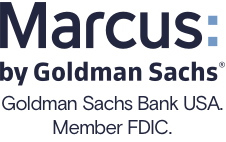Sometimes, the mark of a good bank or bank account is that you don’t have to think about it too much: It works the way you need it to and provides the services and rates you want without costing you much, if anything. But it’s a financially healthy practice to periodically assess where and how you keep your funds. Here are five common banking mistakes that you might not realize you’re making.
1. Using only a checking account
If you have a checking account, you should also have a savings account. It’s important to keep those funds separate so you don’t inadvertently spend funds you’re trying to save for emergencies or bigger purchases, which is easy to do when all your cash is lumped together.
Plus, most checking accounts don’t pay interest. The ones that do generally offer much lower rates than the best free savings accounts or require jumping through hoops to earn a good annual percentage yield. The best savings accounts pay more than 4% right now. Compare that with the national average rates as of May 2024 — 0.08% APY for interest checking accounts and 0.46% APY for savings accounts — according to the Federal Deposit Insurance Corp.
Not sure how much to keep where? Get a better idea of how much cash to keep in your checking vs. savings account by tracking your living expenses for a month. Ideally, keep enough to cover a couple of months’ expenses plus a bit of a buffer in your checking account, and aim to keep three to six months’ worth of expenses in savings.
2. Keeping your savings too accessible — or too inaccessible
If you find yourself dipping into your savings often, consider moving those funds to a different bank than your checking account. The step and extra time of having to make an external transfer from your savings account to access the cash can prevent you from tapping into your savings.
On the other hand, if your savings are too hard to access — locked up in a certificate of deposit (which is a kind of savings account that has a fixed rate and term) or savings bond, for example — you could find yourself in a tough spot if an emergency requiring cash comes up.
SoFi Checking and Savings

4.20%
Forbright Bank Growth Savings

5.00%
Barclays Tiered Savings Account

4.50%
3. Not keeping track of your accounts
Some things are good candidates for setting and forgetting, but bank accounts aren’t one of them. For example, if you open a CD and don’t remember when it comes due, your funds will be locked up for another period because many CDs automatically renew after the initial term ends. It’s a good idea to keep a list of your accounts and set calendar reminders for any timely accounts so that you can decide what to do with your money.
Or have you ever opened an account and then … just let it sit? Some banks charge a dormancy fee if you haven’t made any transactions with your account in a year. And a bank can close your account if it’s been inactive for a few years.
If opening an account that you no longer use sounds vaguely familiar, you might have cash to claim. To check if you have unclaimed property, including cash in a forgotten bank account, you’ll need to do an online search and be ready to provide identification to reclaim lost cash.
4. Paying fees for your account
You don’t have to stick with an account that charges fees. Plenty of free accounts are available, including savings accounts that offer competitive rates. And more and more checking accounts are minimizing or eliminating overdraft fees.
Some free accounts don’t have minimum balance requirements, either, so you don’t have to pay a monthly fee for an account that penalizes you for not having a certain amount of money in it.
5. Not taking advantage of local or online options
A big, national bank might be what you’re used to, but you could be missing out by not taking advantage of credit unions in your area or online options available to everyone.
As not-for-profit institutions, credit unions generally offer higher interest rates on accounts. Take share certificates, the credit union term for certificates of deposit, for example. For a certificate of $10,000, credit unions on average pay significantly more than the national average rate at banks for term lengths ranging from three months to five years, according to the latest data from the National Credit Union Administration. Credit unions averaged 2.85% APY for a three-year certificate while banks paid an average of 2% for the same term, as of March 2024.
And as branchless institutions, online banks are able to pass down savings on overhead costs to customers in the form of higher interest rates. Since they’ve come onto the scene, online financial institutions (whether banks or credit unions) have offered some of the highest yields on many CD terms.
Ensuring that you’re not making any of these banking mistakes can take just a few minutes per task, and the payoff for your financial fitness is big. Separate your savings from your spending money and you can avoid overspending. Also, keep your savings accessible enough and you’ll be able to use the money when you need it. Track your accounts and you can avoid fees. And consider all your banking options — not just the ones you’ve always gone with — to make sure you’re getting the best rates.
Read the full article here






